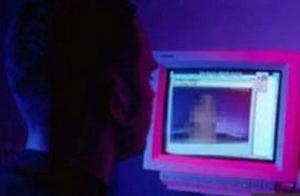Due to popular indignation, Indian authorities abolished blocking of porn sites
 Four days after being blacklisted for blocking 857 porn sites, the government of India surrendered and reversed its decision .
Four days after being blacklisted for blocking 857 porn sites, the government of India surrendered and reversed its decision .In recent days, the authorities have been severely criticized on charges of “moral censorship” and attempts to establish total control over the population.
The story began a couple of months ago, when a certain conscious comrade named Kamlesh Vaswani (Kamlesh Vaswani) compiled a list of 857 pornographic websites and filed an application with the Supreme Court of India, demanding that access to lecherous content be denied. “Nothing can more effectively destroy a person’s personality, embarrass his mind, evaporate his future, eliminate development potential and destroy society like pornography,” he wrote in a statement.
')
The Supreme Court did not heed the concerns of an anxious citizen and decided that adults are fully capable of deciding for themselves whether they should watch pornography and confuse their minds.
Then the government of India took the initiative and decided to still block these 857 sites by sending out instructions to the Internet providers.
Such a move by the government caused a storm of indignation in social networks, and the story quickly began to turn into a farce. Prime Minister Narendra Modi was reminded that in 2012, members of his Indian People’s Party (INP) were caught on camera watching pornography on smartphones during a session of the legislative assembly.
Other users pointed to the rich history of sexual culture in India, embodied in various forms of literature, painting and sculpture. For example, the ancient Indian treatise "Kama Sutra" on the ethics of sex or luxurious erotic sculptures in medieval temples of Khajuraho .

Some have compared the government of India with the Afghan Taliban, which is extremely intolerant of freedom of expression and liberal values.
The introduction of the ban was also criticized by the Association of Internet Providers.
The authorities could not stand the pressure. “I scornfully reject the allegations that this is the Taliban government, as some of our critics have said ,” said Communications Minister Ravi Shankar Prasad. “Our government supports free media, respects social media, and always respects freedom of communication.”
Thus, the authorities had no choice but to abandon their decision. An exception was made only for sites with child pornography, and the government placed the task of finding and blocking such sites on Internet providers. The association of Internet providers has expressed extreme dissatisfaction with the emergence of new responsibilities and intends to file a protest.
Source: https://habr.com/ru/post/355862/
All Articles